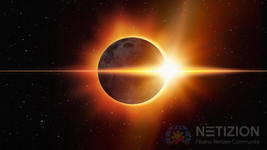
You might have seen Facebook posts claiming the Philippines will experience three days of total darkness with the arrival of a solar eclipse on April 8. However, the Philippine Atmospheric, Geophysical, and Astronomical Services Administration (PAGASA) has clarified that the celestial phenomenon will not be visible in the country.
"DOST-PAGASA would like to inform the general public that the news circulating on the internet about the Earth experiencing three days of darkness due to its passage through Photon Belts on April 8, 2024, is a hoax," PAGASA said in its latest astronomical diary.
The last time the Philippines experienced a partial solar eclipse was on April 20, 2023. On the other hand, a total solar eclipse is expected to occur on April 20, 2042 over Palawan, Masbate, and Albay—that's almost two decades from now.
It is true that a solar eclipse will occur on April 8, but it will only be visible from the United States, Mexico, and Canada. Moreover, PAGASA refuted the claim that a solar eclipse will cause a three-day darkness.
With that debunked, what then happens during this celestial phenomenon?
What happens during a solar eclipse?
A solar eclipse is a celestial event that happens when the moon moves between the Earth and the sun, blocking all or part of the sun's light from reaching the Earth."During a total eclipse, some areas in the mentioned places will experience temporary darkness caused by the moon passing in front of the sun," PAGASA said.
That said, it won't become completely pitch black on April 8, but it will get surprisingly dark during the day. The darkness is temporary, lasting just a few minutes at most, depending on where you are within the path of totality. You'll also be able to see some stars and planets that usually only come out at night.
What happens if you look at a solar eclipse?
Looking directly at a solar eclipse without proper protection can lead to a condition called solar retinopathy. The intense sunlight during a solar eclipse might damage the cells in your retina, which can cause long-term vision issues.The symptoms of solar retinopathy might not be immediate but can include blurry vision, reduced visual acuity, light sensitivity, a blind spot, and changes in how you see colors or shapes. Vision loss can occur, but it's more common to experience a permanent blind spot or visual distortions rather than complete blindness.
Most people's vision improves on its own after a few months, but any vision changes that haven't improved after six months could be permanent. There's no specific treatment for solar retinopathy, so don't risk it!
